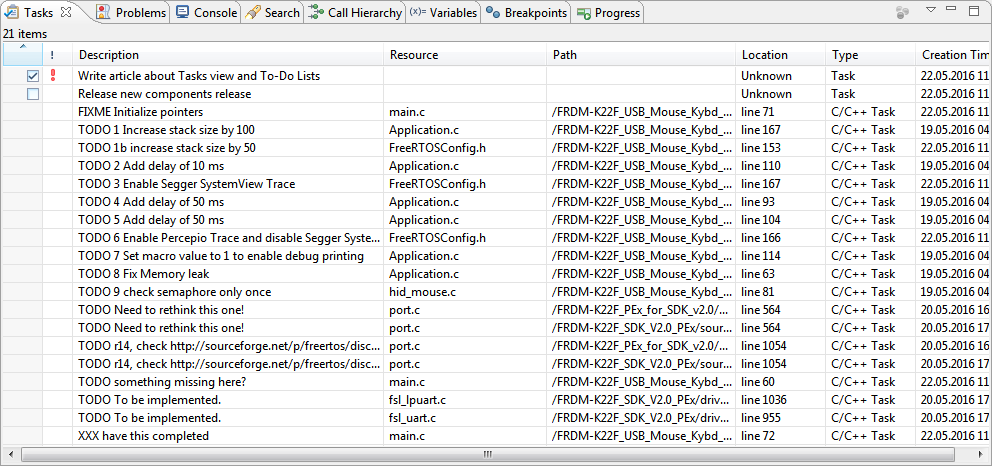Automated Coding with LLMs: Making a Rumpus

This post introduces a simple tool, called rumpus that helps me keep track of TODOs, etc. using the macos menubar. It’s not that interesting on its own. What’s interesting is the fact that it’s written completely using a local LLM in 15 minutes. I wanted to write a quick post on the how and why of it, and how I see programming beginning to change with the increasing power that “off the shelf” LLM models can provide.
As a programmer, there are always minor improvements or tweaks I wish I could implement. However, the cost/benefit tradeoff often deters me from spending time on these enhancements. Recently, I’ve been exploring how to integrate large language models (LLMs) into my workflow to streamline this process.
I prefer keeping reminders in the menubar at the top of my screen for easy access, but I find the flexibility of conventional “Todo” apps lacking. To address this, I started using TODO, FIXME, and other comments throughout my code, often accompanied by emojis. These comments are typically actionable and convey more information than a simple tag or word. My menubar is already pretty crowded enough!
Here’s a sample piece of code with such comments:
# TODO: Implement the function to calculate the factorial of a number
def factorial(n):
# XXX: This is a placeholder implementation
if n == 0:
return 1
else:
# FIXME: This recursive call might cause a stack overflow for large n
return n * factorial(n - 1)
# TODO: Add proper error handling for invalid input
def safe_factorial(n):
try:
if n < 0:
raise ValueError("Negative numbers are not allowed")
return factorial(n)
except TypeError:
print("Input must be an integer")
except ValueError as ve:
print(ve)
# NOTE: This is a test function to demonstrate the usage of factorial functions
def test_factorial():
test_cases = [0, 1, 5, -3, 'a']
for case in test_cases:
print(f"Factorial of {case}: {safe_factorial(case)}")
# FIXME: Ensure that the main guard is correctly implemented
if __name__ == "__main__":
test_factorial()These comments help track necessary actions across a project. While most IDEs display TODOs in a separate panel, my TODOs are scattered across multiple files, including markdown files that don’t require an editor. For instance, here’s a basic TODO panel from Eclipse. It’s nice, but Eclipse is a memory hog. I don’t want to open it just to see my list.

I wanted a centralized list of these flags visible in the menubar, which is always accessible regardless of the active program.
The rump library simplifies menubar configuration, but it requires reading the API documentation and managing basic UI functionality (e.g., showing file matches under the emoji and opening them when clicked). I started with a simple “Hello World” example using rumps, with the help of an LLM:
import rumps
class HelloWorldApp(rumps.App):
def __init__(self):
super(HelloWorldApp, self).__init__("Hello World")
if __name__ == "__main__":
HelloWorldApp().run()From there, it only took a few iterations to develop a script that processes path/extension arguments, searches through files, and tabulates the hits into emoji-based entries in the menubar. The final result looks like this:

This tally of tasks and reminders in my menubar was satisfying to create end-to-end using a library I wanted to work with and an LLM to help compose the functionality. Coding the entire thing took about 15 minutes, far less time than writing this blog post.
Automated coding is reaching a point where it can significantly shift the cost/benefit analysis for certain tasks. While there may still be challenges, I believe the resulting script is of higher quality than my usual “15 minute” hacks. I also learned that it’s a good idea to use a combination of libraries and tools as a starting point, rather than just letting the model decide itself what to use.
There’s certainly more to be written here, but it’s not bad for 15 minutes of coding!
© Copyright 2025 Justin Donaldson. Except where otherwise noted, all rights reserved. The views and opinions on this website are my own and do not represent my current or former employers.